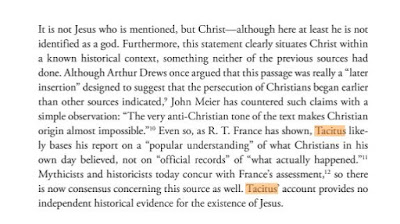The Ignorance Objection
For today's post I'm reviving a 2010 post from my Ticker blog. To answer in advance -- yes, I still run into this objection now and then, but not as much as I used to. Possibly I've banned so many trolls from TektonTV that make it that any new ones that show up know it's an instant ticket to getting themselves banned. ** The barren wastes of YouTube have brought back an objection of the sort I have not seen in a while, something I can call the Ignorance Objection. A YT user styled “CMrace” put it this way: I mean honestly, pretending to know what idioms were in common usage 2000 years ago, what metaphors people used, ignoring slang, pretending you know what common usage of greek was 2000 years ago.You don't know those things because no one knows those things. You even pretend to be a scholar when you are just an English/Lit (minor, major maybe) All this just so you can say your book is 100% true. You don't like this opinion 'non

